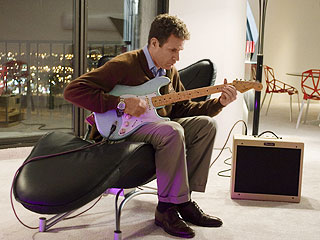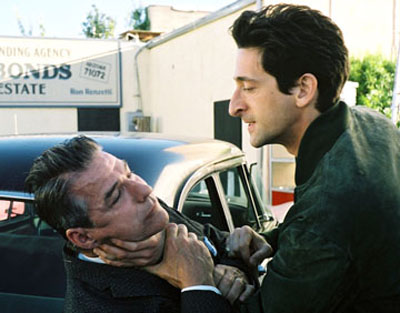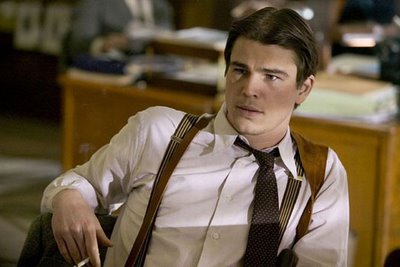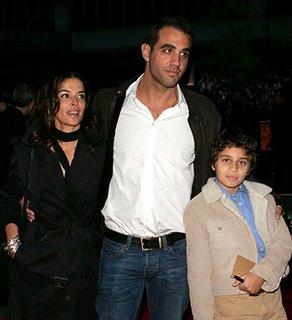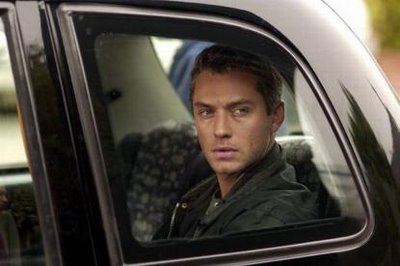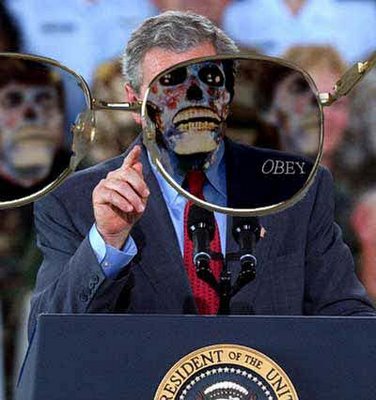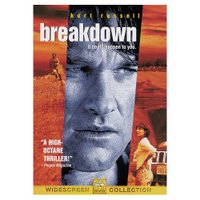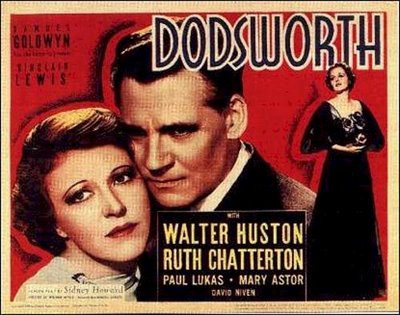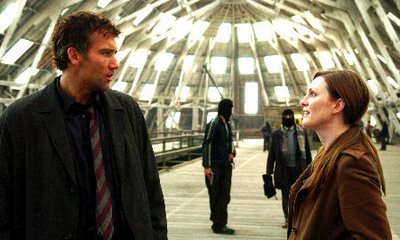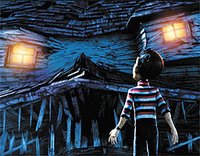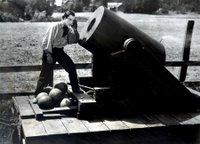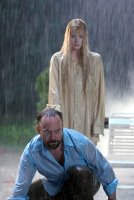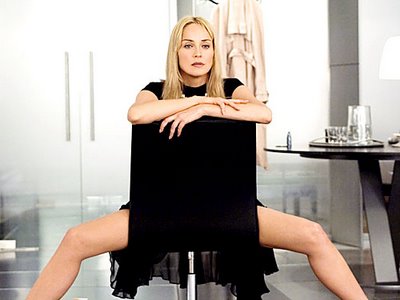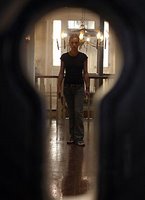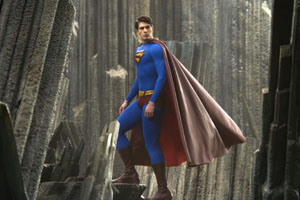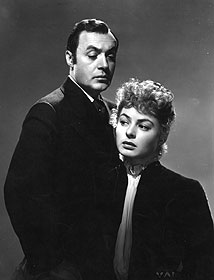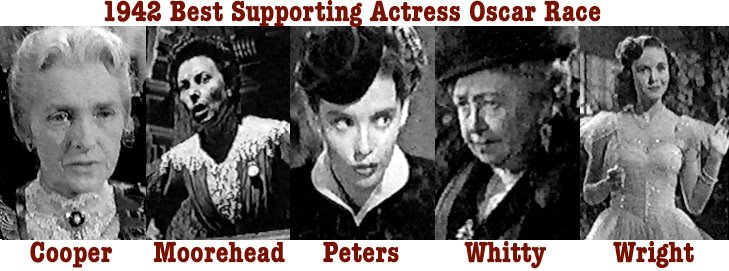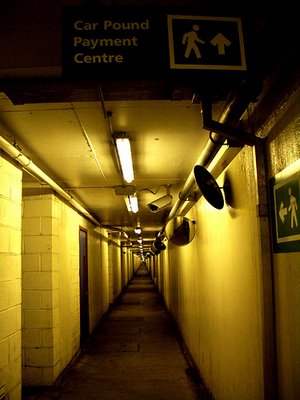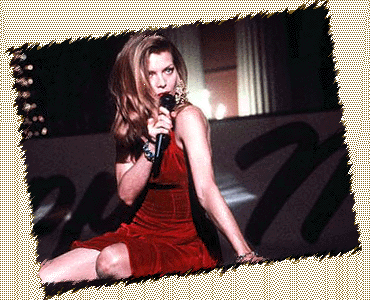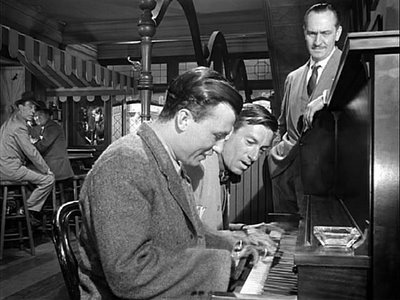
I suppose I could just pick up David Thomson, but my favourite way to get an instantly accessible overview of a director's career tends to be courtesy of all those people — many of them apparently half-mad, but bless — who cast their votes on the Internet Movie Database. Clicking "sort by ratings" — which gives you a ranked list of any director/actor/craftsperson's complete output according to each film's average mark out of ten — is admittedly a fairly tragic activity, but then so is treating the ticking off of movies as a life goal (guilty) and collecting football cards (not guilty) and any number of other male, listy things, so leave me alone.
Anyway, it can yield some surprises. What would be your guess for everyone's favourite Bergman film?
The Seventh Seal (1957)? Try
Shame (1968). Worst film starring Nicole Kidman? It ain't
The Human Stain (an alarmingly high average of 6.29) or
Days of Thunder (5.30) or even
The Stepford Wives (5.20), but something from 1987 called
Watch the Shadows Dance (3.83). (Apparently the 2000 Blockbuster Entertainment Awards, which voters scathingly panned with an average of just 3.03, were even less enjoyable.)
Anyway, a director I've been checking out recently is
William Wyler, whose record is quite something: 29 movies, and not a single one that dips below a pretty respectable 6.8 on the "weighted" scale. (Whatever that means.) Bottom is 1935's Edward G Robinson-starrer
Barbary Coast, on which Wyler was actually replaced by Howard Hawks. Hawks, Cukor and others would go green looking at Wyler's scorecard, even if his top mark (8.2 for
Ben-Hur) isn't particularly stratospheric compared with, say, the upper echelons of Hitchcock or Welles.
Looking at his career this way has confirmed my sense that Wyler was one of the most genuinely reliable directors of Hollywood's golden age, if by reliability we mean a versatile craftsmanship in, out and between genres, a habit of doing intelligent justice to his given material, and a sturdy interest in recurring themes without the instantly recognisable authorial stamp of his more canonised peers. Which is to say, if you were a Cahiers du Cinema critic, you'd probably have to call Wyler a "metteur en scene" rather than a full-blown auteur, but, unless you were a particularly dogmatic one, you'd still have to allow him his own subtle signature — refined and difficult to forge, we might say, unlike the bold, easily pastiched imprimatur of a Hitchcock or a Frank Capra.
I'd differ very slightly with IMDb's rankings of the mere five Wyler films I've seen to date:
Funny Girl (1968), which I still quite like, does belong towards the bottom, because though it contains, or rather struggles to contain, an almost frighteningly assured declaration of intent from Streisand (in her debut), it's typical of the stodgy, puddingy quality of late-Sixties musicals in too many other ways. I like
The Children's Hour (1961) quite a lot more than
Mrs Miniver (1942), basically because of sharper drama and better acting, but both are strong; and
The Heiress (1949), the director's stab at Henry James's
Washington Square, stands up beautifully give or take a slightly disappointing performance from Olivia de Havilland.
It's not for want of chances, but I've still yet to see
Ben-Hur. The Wyler I've just got round to, third down on the IMDb list, is his WWII homecoming drama
The Best Years of Our Lives, a big wham-bam Oscar grab bag in 1946, but a marvellous, bitter and plangent movie all the same, enthrallingly small-scale for a film of its epic length, and distinguished by at least two remarkable performances and several pretty good ones.
Nick, for one, considers Fredric March's Oscar the most worthy ever given in the Best Actor category, at least among those he's seen; I think I'd give that honour to George C Scott in
Patton by a whisker, but it's very close, with Nicolas Cage and F. Murray Abraham (curiously underrated, insofar as an Oscar-winner can be) not far behind.

Still, for all March's contained virtuosity, his caginess, his staunchly untheatrical self-pity, there was another performance which, if not
technically its equal perhaps, struck me as in many ways even more impressive in terms of its centrality to the film's impact. I'm talking about Harold Russell, who plays double amputee Homer Parrish. Wyler lavishes his best work on the character right from the beginning, as do cinematographer Gregg Toland and (in one of his finest scores) composer Hugo Friedhofer, all enfolding him in a spellbindingly expressive moment of wordless vulnerability as he wakes up on his flight home and gazes out fearfully and almost beseechingly at the clouds.
I was instantly attached to Homer as a character and Russell as a performer, and so impressed by his acting that I began to doubt whether he was a non-professional war veteran as I'd initially assumed. I must admit that I'd never heard of the man, a real-life amputee who was awarded the kind of Best Supporting Actor Oscar the Academy could, in this of all years, have felt justified handing him for sentimental reasons alone. But they didn't, or at least they needn't have, on that basis. He's a wonderful, genial, touching and sad presence throughout the film and really the whole point of it. The way he modulates his pain in different company — hearty with the guys, stiff and awkward with family, almost unbearably lonely and introspective on his own — tells Wyler's whole story about rehabilitation and tells it magnificently. I found the other plotlines less compelling in various ways — Dana Andrews and Teresa Wright struggle to make their will-they-won't-they courtship sufficiently surprising, and Myrna Loy is perfectly good but oddly irrelevant — but even if the film falls just short of greatness in its last hour, it remains top-flight stuff whenever March or Russell is on screen. Overall, it strikes me as almost the summary statement of Wyler's career: shrewd, humanistic and powerfully layered, an honourable and unpretentious achievement which stands its ground, neither giving in to maudlin awards-bait theatrics nor pretending to solve all its characters' problems in one go.
Ben-Hur (#1) and
Dodsworth (#2) will need to be pretty damn good to beat this.
The Best Years of Our Lives (1946) A—
The Heiress (1949) A—
The Children's Hour (1961) B+
Mrs Miniver (1942) B
Funny Girl (1968) B—







